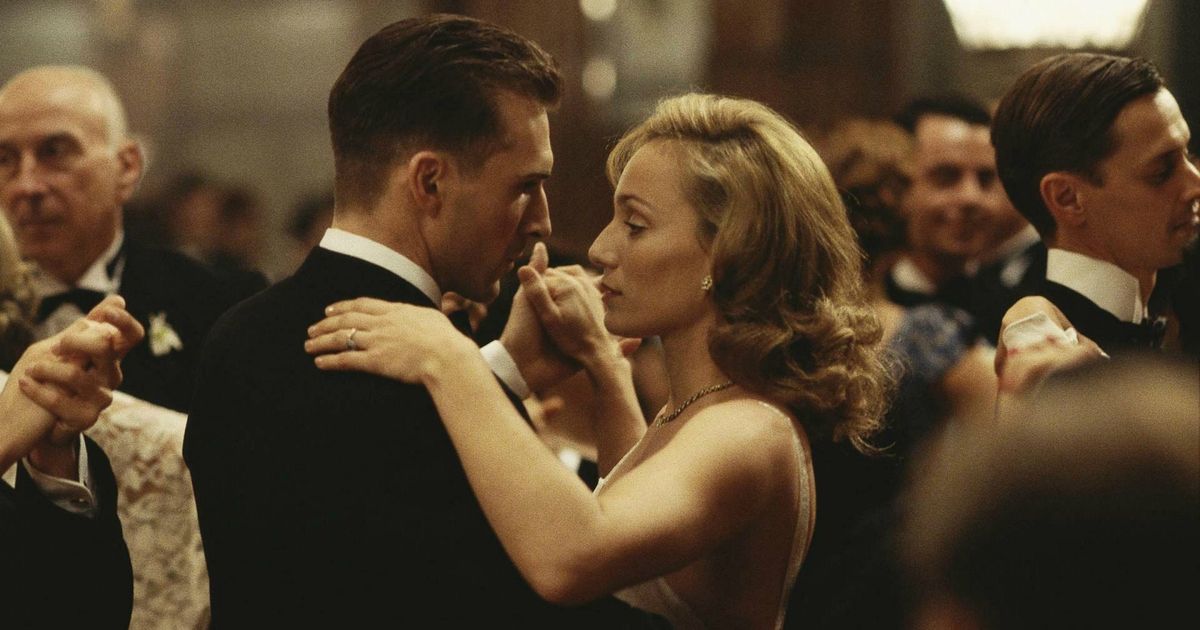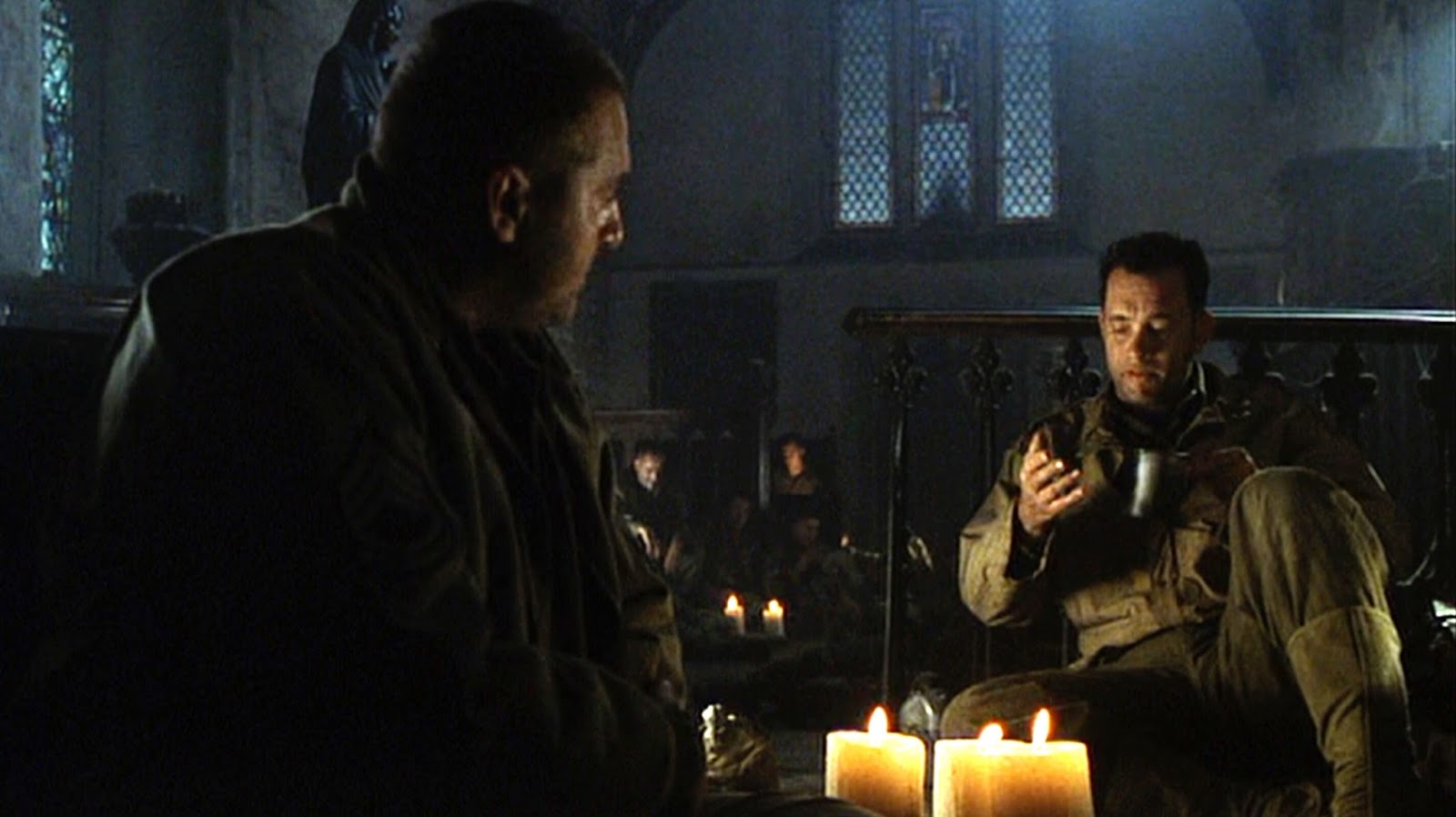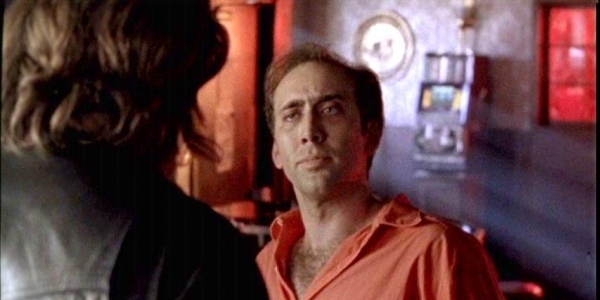When I first walked out of Hoyt’s Cinema after an evening viewing of The English Patient, the first thoughts to inhabit my admittedly overwhelmed mind were “damn, now that’s an adult movie.” Obviously I’m not referring to films that I could’ve rented from Dirty Dave’s Romantic Supermart had stepping foot inside not embarrassed the hell out of me, but those that film critics would watch and assign terms like “majestic,” “epic,” and “for the ages” so that they could be immortalized on the home video release box art.
It was unlike any movie I was watching at the time because there was no profound use of swearing, no made for Tower Records soundtrack, and absolutely nothing that could be described as “hip” or “edgy.” There were certainly no big movie stars or up and coming ingenues. Of the entire cast I only recognized Willem Dafoe. It would be at least a year before I’d realize that Ralph Fiennes, who played the titular patient, was the pasty and pudgy Nazi officer from Schindler’s List because this version of Mr. Fiennes was tan, taught, and stare-at-the-horizon-broody, an Indiana Jones less concerned with fortune and glory and instead obsessed with mapmaking. Who needs a whip when you have a trusty copy of Herodotus’s The Histories?
I wasn’t the only viewer who had opinions on the film because it would not only go on to receive numerous accolades, including the Oscar for Best Picture, but also become the butt of a pop culture joke thanks to Seinfeld’s Elaine finding the film very boring. The English Patient somehow became both adored and reviled, making its way onto Best Picture lists as well as Worst Best Picture lists.
I was smitten though. For me, director Anthony Minghella had delivered something not seen since the days of David Lean and Lawrence of Arabia. It was unconcerned with it’s nearly three hour run time as it was with filling the screen with recognizable movie stars. Each person to have a major role soon became an obsession for me, other than Willem Dafoe, who thanks to his role in Streets of Fire was already an obsession. Juliette Binoche might’ve been a big deal in France but she was hardly an above the marquis name at Front Row Video. Thanks to her high profile role, and eventual Oscar win, I’d go on to discover films such as Three Colors:Blue and the Unbearable Lightness of being. The same goes for Kristin Scott Thomas, who I would become absolutely infatuated with. Much like Ralph Fiennes’ character Count Almasy, I too would look for her everywhere…on the video shelf and soon view the likes of Richard III, Bitter Moon, and Four Weddings and a Funeral. Other stars would take years to come into the public consciousness, but I can’t imagine a world without Colin Firth and his array of dapper gentlemen clothing nor the show Lost without it’s trusty torturer, Naveen Andrews.
But to watch The English Patient and not give credit to cinematographer John Seale (a long time collaborator of another favorite, Peter Weir) would be a mistake. For a poverty stricken student from central Maine, places such as Italy and North Africa were as far away as the moon. Sure, if I played my cards right I might be able to study a semester abroad (I didn’t) but throwing $3 down at the local video store (which I did frequently) was a much easier and more affordable way to learn about these exotic locals. Seale’s cinematography didn’t disappoint, capturing every windswept sand dune, every bazaar, every broken down building in the Italian countryside like it was a work of art, each scene a beautiful painting that you wanted to put up on your walls. It was one of the first films I remember being thankful for seeing on the big screen because I knew the VHS tape was never going to capture all it’s beauty, especially in the dreaded pan and scan format.
Watching the movie I felt like I was finally appreciating something on a grown up level.
Of course, I was wrong.
As we all know, while film is a visual medium, and the visuals are of course important, that’s not what makes a film great. It might look damn pretty, but if there’s not much more to it than pretty pictures then it’s at best a footnote. I was certainly entranced and seduced by the beautiful people standing around in beautiful locations, but at twenty years old, I couldn’t fully appreciate the story at the time. As Almasy says at one point, “a thing is still a thing no matter what you place in front of it.” No matter how many adjectives I used to describe the movie, it wouldn’t matter to me unless it’s story meant something. For Almasy, life meant nothing more than the scenery. He was a cartographer and explorer, and for him the beauty of the world lay in it’s vista, mountains, and caverns, not other people. Other than his partner Madox, everyone else was just a means to an end until he met Katharine (Kristin Scott Thomas), and from there it would be her that would give his world some beauty, some meaning, something other than maps to obsess over.
Most twenty year olds will tell you that they know what love is. Most forty year olds will admit how wrong they were at that age. I certainly was. I had a high school girlfriend and of course we had exchanged “I love yous” and other exclamations of affection, so I thought I knew what love meant. Love was picking someone else above all others, right? At that point in my life I’d really only made one life altering decision, but since it was to switch colleges to be closer to her than obviously I knew all about big romantic gestures and the all consuming fire of love that the poets speak of…right?
“Every night I cut out my heart, but in the morning it was full again.”
It’s easy to admit now, looking back on the me from twenty years ago, but I honestly had no idea what the hell that line from Almasy’s journal meant. It was certainly romantic and swoon inducing,, but the metaphor of cutting my heart out meant nothing because I hadn’t experienced romantic pain or anything more than juvenile longing.
Which brings me to the biggest question that I ask myself upon revisiting this film…can one understand love, in all its intricacies and complexities, if they’ve never experienced a broken heart?
I was lucky because at twenty years old I had never had my heart truly broken. I’d been in relationships, but for the most part had been the one to do the breaking up. I’d had girls turn me down despite me assuring them that dating me would be a great idea. I’d definitely let girls slip away without understanding them or appreciating them, so to say that I knew and understood love was at best hysterical. I’d read my fair share of Shakespeare, but as any high school English teacher can tell you, quoting the bard does not equate with comprehension. Certain pain must be undertaken in order to be understood.
That theme is best encapsulated within one scene, and after viewing it one can see that it works as a Rosetta stone for the rest of the film.
Both Almasy and Katharine, after giving in to their lustful urges, find themselves in a bathtub together, an absolute luxury for that time and place. Twenty year old me paid attention to the scene because Kristin Scott Thomas went there, unafraid to go fully nude for the scene. But forty year old me recognized it for the moment that it was, two lovers enjoying each other’s space, wrapped in a moment that existed beyond the bodies desires. Adults sharing intimacy, both physical and emotional nakedness. The type of moment that can be easily ruined with questions, as we all know, and Almasy is no different from us in that regard.
“When were you most happy?” – “Now.”
“When were you least happy? – “Now.”
Those lines devastated me because they show how complicated love can become, a complication that those with youth cannot grasp as easily. It’s the type of love that one knows isn’t in your best interest, but cannot turn away from. Every fiber of your being knows that it’s not going to end well, the chances of your heart being crushed and your soul damaged are too high, but you proceed without hesitation anyway. It’s the type of love that should it turn out well will change you for a better person, but should it go awry it will do just the opposite. It’s the type of love that you make promises for that aren’t in your best interests to keep but you do it anyway.
Only those who have had love go bad can understand that.
The English Patient is a story of tragic love. Even as the movie progresses you know it cannot turn out well for Almasy and Katharine. All the odds are stacked against them. But therein lies the beauty of this film. As the story unfolds, and you learn of the doomed affair between them you’re also treated to the story of Hana, portrayed by the aforementioned Juliette Binoche. When we first meet Hana shes a wartime nurse who is surrounded by death. Within a few minutes of screen time we witness the death of her best friend as well as hear of the death of her husband.
“I must be a curse. Anybody who loves me…anyone who gets close to me…Oh I must be cursed.”
Anyone unlucky at love can at least understand her pain, even if it’s not to that extreme. So instead of continuing to engage with the living she takes care of the dying English patient, removing herself to the remote Italian countryside. She has every logical reason to give up on love, but soon finds herself smitten with a young Sikh who is removing bombs from the nearby town. So while we learn of the doomed relationship of Almasy and Katharine, we are treated to a hopeful love as well.
I guess that’s what the forty year old me is more capable of understanding than even the me of just a few years ago. Love can hurt, terribly, especially when you put so much of yourself, of who you are, into it. It’s a pain that at times can feel unendurable and giving up on everything feels like an option worth looking into. But there’s always hope, even when the world around you is at it’s bleakest.
We may not be prepared for the weight of obligation, or the nourishment than love can provide. We may not understand how deep our emotions run or have the knowledge to deal with them if they go unchecked. We definitely don’t have the wisdom to always make the correct choice when it comes to self-preservation, and more often than not there will always be ghosts to remind us of our past sins. But there is beauty among the rubble of our broken lives, and a way to disarm even the most unstable of explosive situations.
“New lovers are nervous and tender, but smash everything.
The heart is an organ of fire.”
I lived most of my life afraid of the damage that fire could perpetrate. Being burned once is enough to make even the bravest of souls timid. Finding that love that refills you though, that allows you to cut out your heart every night in the knowledge that in the morning you’ll be whole again…that’s what we should all yearn for.
And at twenty, I had no comprehension of what that actually meant.
I’m the better man for having that knowledge now. And I didn’t find it in Herodotus’s Histories.


